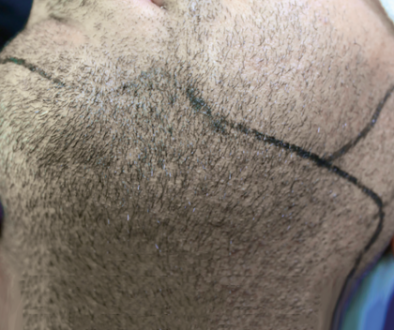The Future of Treating Hair Loss
 It is an exciting time for medical research. Treatments and procedures that were once the stuff of science-fiction are now becoming reality. However, with all of these medical advancements, the long-awaited hair loss cure continues to elude us. But there may be hope somewhere on the horizon. Scientists all over the world are currently involved in research that is either directly related to finding a cure for balding or may lead to further developments toward one.
It is an exciting time for medical research. Treatments and procedures that were once the stuff of science-fiction are now becoming reality. However, with all of these medical advancements, the long-awaited hair loss cure continues to elude us. But there may be hope somewhere on the horizon. Scientists all over the world are currently involved in research that is either directly related to finding a cure for balding or may lead to further developments toward one.
Recently, Histogen’s Hair Stimulating Complex (HSC) has been garnering a lot of attention in the patient community. Histogen offers the potential promise of a permanent increase in overall density through new hair growth and a general improvement in the quality of existing hairs. Histogen is still in development and requires a lot more testing before it can provide any real hope to hair loss sufferers. However, Histogen has reported favorable results during the first phase of clinical trials and will initiate the second phase of trials early next year in Asia. To discuss Histogen on our hair restoration forum, click here.
While Histogen may provide hope to balding men and women, other potential treatments may exist in the future. Scientists continue to explore hair multiplication, a means of cloning DHT resistant hair follicles and either injecting or transplanting them into a patients scalp to produce new hair growth. Additionally, stem cell researchers from Sweden and Scotland discovered why transforming thymus cells into skin cells may offer a potential treatment for baldness. While positive changes have occurred in the testing of rats, getting it to work on humans may not be so easy. You are also encouraged to add your thoughts and opinions to the following discussion thread, Stem Cell Researchers May Have Found Baldness Cure.
Medical breakthroughs typically advance exponentially but those balding men and women who have reached middle-age and beyond can tell you that the miracle cure has been “only five years away” for more than two decades. Ignoring proven treatment options such as Rogaine (minoxidil) and Propecia (finasteride) in hopes that something better may come along could potentially lead to further and irreversible hair loss. In addition to these non-surgical treatments, advances in hair transplant surgery over the past 15 years have resulted in today’s ultra-refined follicular unit transplantation. While it’s important for those suffering from hair loss to remain optimistic and to stay abreast of future treatment options, it is equally important to remember that genetic hair loss is progressive. If you are concerned about your hair loss, you are encouraged to begin exploring today’s available treatments while hoping for a cure in the future.
—-
David – aka TakingThePlunge
Assistant Publisher and Forum Co-Moderator for the Hair Transplant Network, the Hair Loss Learning Center, the Hair Loss Q&A Blog, and the Hair Restoration Forum
Follow our community on Twitter
Watch hair transplant videos on YouTube
Technorati Tags: hair loss cure, cure for balding, hair growth, hair loss, hair restoration, balding, Rogaine, minoxidil, Propecia, finasteride, hair transplant, follicular unit



